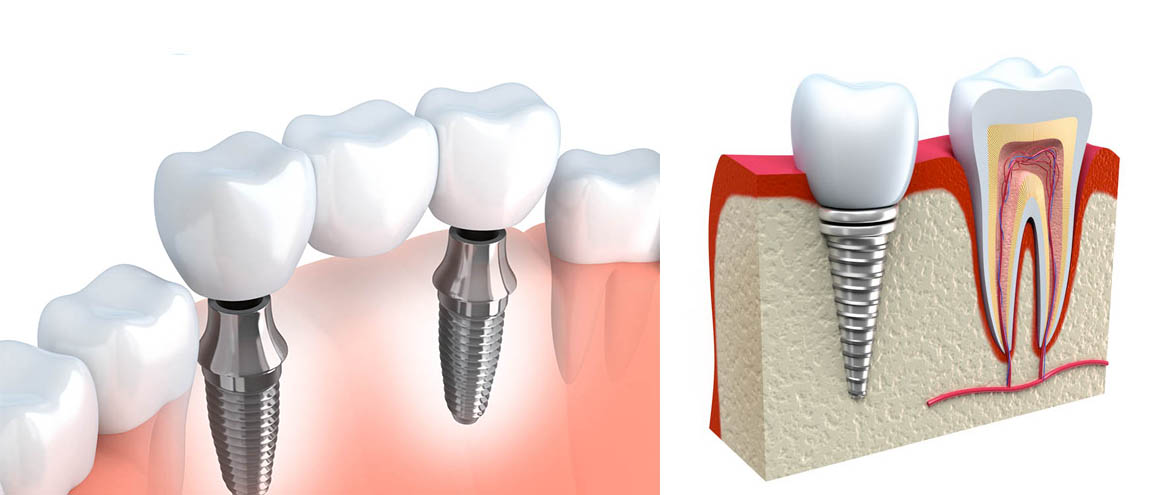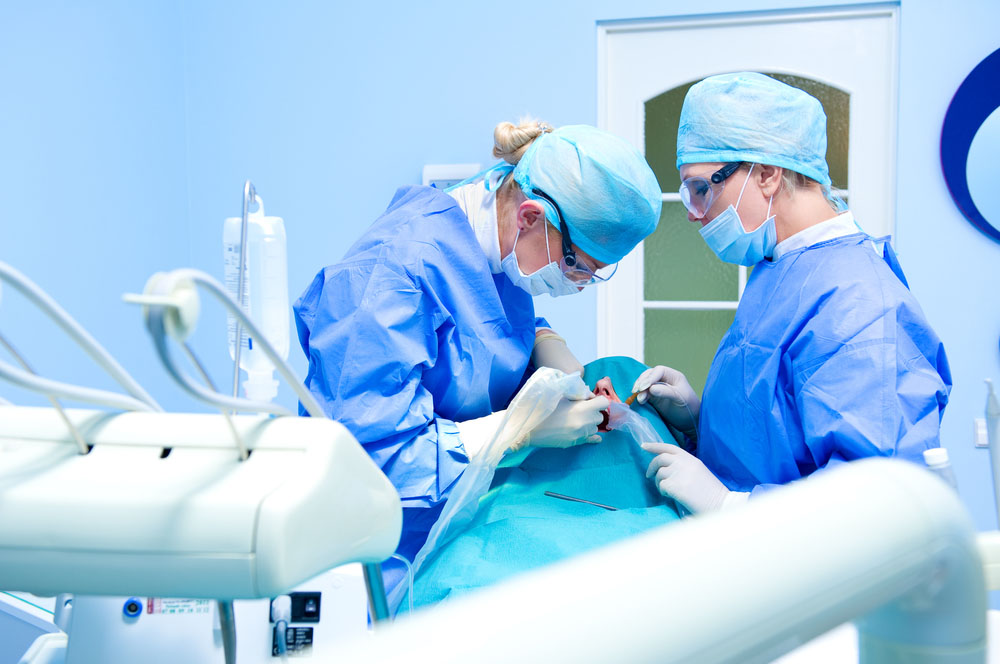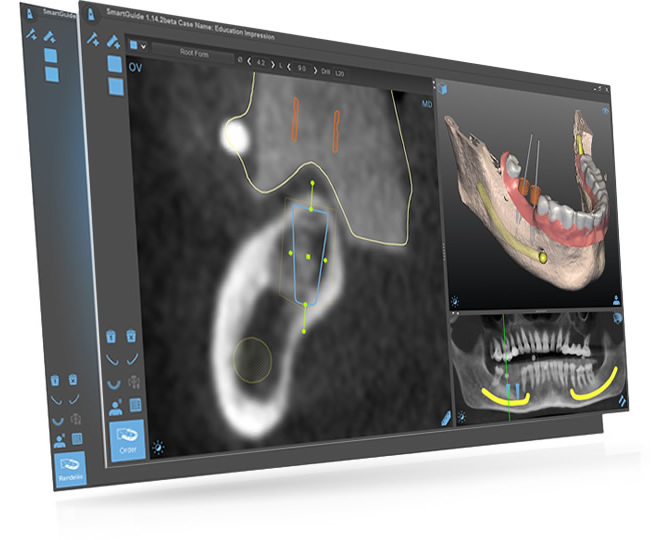The placement of dental implants is the up-to-date solution for restoring the missing teeth in the edentulous area.

The basic principle of this procedure is that we connect the artificial teeth to the titanium screws placed in the jawbones (to the so-called IMPLANTS). The use of an innovative procedure allows us to minimalise the surgical trauma and to ensure excellent precision during the placement of the implants. Another advantage if this procedure is that the length of the surgical intervention and the necessary healing period is also considerably reduced.

3D IMPLANTATION
We make a digital plan prior placing the implants with a state of the art 3D navigation software

Digital planning
Safety and precision during the surgery
Minimal surgical trauma
Reduced length
Less pain
Better, more aesthetical outcome
Lower chance of postoperative complications
Steps of the placement of implants
1.
After evaluating the clinical status a 3D image (CBCT) is made of the edentulous are and the surgeon makes a digital plan of the upcoming procedure. The treatment plan is always explained in detail to the patients.
2.
During the next visit the implant is placed with a cutting edge 3D navigation procedure in the jaw bone. This surgical intervention is done under local anesthesia. If the volume of the bone is not enough to provide a stable anchorage for the implant(s) we apply simultaneously bone grafting material.
3.
The undisturbed healing period has a key role in a successful implant treatment. According to the international protocols the minimum length of this period is 2-3 months. During this period the bone “attaches” to the implant (osseointegration).
4.
After the osseointegration an artificial tooth is made and fixated on the implant. The artificial tooth is made in a dental laboratory with extremely precision. This ensures the quality of the restoration what provides unique esthetic and the excellent functional features. The treatment plan consists of different solutions, detailed information and the price of the used materials.
The treatment plan consists of different solutions, detailed information and the price of the used materials.

Excellent safety and outstanding precision with minimalised surgical trauma during the placement of dental implants.
The Dental Garden is the reference practice for SMART Guide.

The rationale of a successful implant restorations
Dentist all around the world agree upon one thing, the position of the implant plays a major role in the success of the treatment. It is very important that the position of the implant is correct from both anatomical and esthetical aspects.
SMART Guide
The SMART Guide is a newly developed cutting-edge innovation in the digital dentistry that allows the surgeon to find the perfect position for the implants. The dentist uses a software that utilizes the three-dimensional image of the patient’s jawbones. As the result of the planning we get an individual surgical template that ensures the correct position of the implant from esthetical and anatomical aspects.
The advantages of SMART Guide
State of the art diagnostics: High quality three-dimensional diagnostic procedures prior the surgical treatment.
Reduced risks: The precise planning and implant placement allow us to minimalise the risks and the chance of complications during and after the surgery.
Reduced chair time: The time spent in the dental chair is reduced to the fraction compared to the classical surgical techniques.
Less inconvenience and pain: Minimal surgical trauma during the surgery. In most of the cases there is no need for sutures, and the smaller wounds cause less pain.
Simplified surgical technique: Additional surgical procedures can be avoided by utilizing all of the anatomical features of the jawbones.
Example of a treatment plan using SMART Guide for planning the position of the implant
- Consultation with the dentist
Your dentist explains every aspect of the upcoming treatments and the SMART Guide.
- CT scan
A CBCT image is made of the edentulous area to assess the quality and quantity of the soft-, and hard tissues. This procedure is painless and it takes only a few minutes.
- Digital planning
The surgeon makes a digital plan based on the CT image to determine to optimal position of the implants. The software allows to make a precise model of the implants, and to assess their optimal diameter and length regarding the volume and quality of the bone and the position of the nerve canals and maxillary sinuses.
- Placement of the implants
According to the digital plan an individual surgical template is fabricated. We use this template during the placement of the implants. This ensures the optimal position of the implants and reduces the inconvenience and the time of the surgical procedure.
- Prosthetics
The implants placed in the optimal position enable the dentist to make an ideal restoration according to the patient’s desire.

